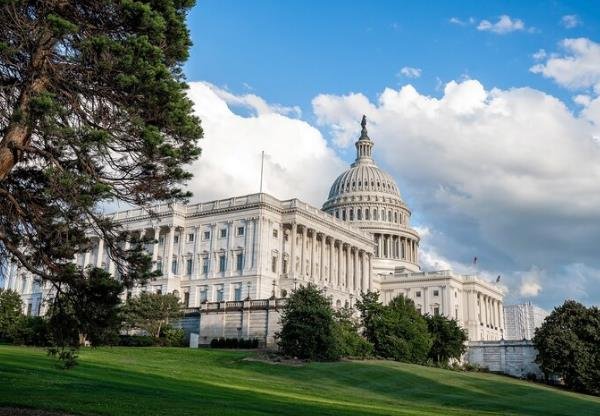Maverick Gaming’s legal battle against Washington State’s exclusive tribal sports betting monopoly has come to an abrupt halt. Last week, the Third Circuit Court of Appeals upheld a lower court’s dismissal of the case, delivered in February 2023, in a significant blow to the operator’s efforts to challenge the state’s tribal sports betting compact.
The Challenge: A Bold Move by Maverick Gaming
Maverick Gaming, a prominent Washington State card room operator, made headlines in 2022 when it filed a lawsuit against the state’s 2020 sports betting compact with tribal nations. The company had spent millions acquiring card rooms across the state, betting that the legislature would soon legalize commercial sports betting. However, in the wake of the 2020 compact, which granted exclusive sports betting rights to tribal operators, Maverick found itself at a disadvantage.
The lawsuit argued that Washington’s 2020 compact violated the 10th Amendment and the Equal Protection Clause by granting exclusive sports betting rights to tribal nations. Maverick also claimed that the compact violated the Indian Gaming Regulatory Act (IGRA), which stipulates that tribes can only offer certain types of gaming if those games are available elsewhere in the state. According to Maverick, the law had been misused, giving tribes a monopoly on sports betting while excluding non-tribal operators like itself.
Despite the legal challenge, the appeals court sided with the state’s tribal sports betting model. The judges ruled that the compact’s provisions were consistent with the federal law governing tribal gaming, and the exclusive rights given to tribes were within the scope of state sovereignty and federally protected tribal rights.

What Went Wrong for Maverick?
Maverick’s argument was rooted in claims that the state-sanctioned tribal monopoly on sports betting was unconstitutional. The company maintained that its substantial investments in card rooms across Washington State were meant to position it for success when the state finally legalized commercial sports betting. The 2020 compact, however, left Maverick and other non-tribal gaming operators on the sidelines, effectively cutting them out of a lucrative market.
Despite the ambitious lawsuit, the court found Maverick’s arguments unconvincing. The ruling emphasized that Washington State’s compact with tribes was a matter of tribal sovereignty, a protected principle under federal law. This position was reinforced by the Shoalwater Bay Tribe’s involvement in the case. The tribe intervened, asserting that the lawsuit posed a direct threat to their sovereignty and would undermine their ability to negotiate gaming agreements with the state.
Maverick’s legal team tried to argue that the compact violated the IGRA, but the courts disagreed. The judges ruled that the tribes were within their rights to offer sports betting exclusively, as long as it was available elsewhere in the state, which in this case, it was not. The decision hinged on the fact that Washington’s sports betting market was initially intended to be controlled by tribes, and the compact preserved their exclusive rights.
A Lesson in Tribal Sovereignty
One of the key elements of this case was the issue of tribal sovereignty. The tribes involved in the lawsuit argued that Maverick’s suit could undermine their legal protections under the Indian Gaming Regulatory Act (IGRA). Tribes have historically fought to protect their rights to operate gaming establishments without state interference, and the compact was designed to reflect those rights.
The Ninth Circuit Court echoed these sentiments, agreeing with the lower court’s finding that the dispute threatened the sovereignty of Washington’s tribal nations. The opinion emphasized that the economic impact of tribal gaming was crucial not only to the tribes themselves but also to the surrounding communities. The court also pointed out that the long-standing history of tribal gaming in Washington made it particularly sensitive to federal and state interests.
The legal battle became more complex when the Shoalwater Bay Casino intervened in the case. The tribe argued that any legal challenge to the compact would violate their sovereignty and disrupt the economic benefits they receive from gaming revenues. As a result, the court ruled that the tribe could not be compelled to participate in the case, and the suit was ultimately dismissed.
The Road Ahead for Maverick Gaming
With the Third Circuit Court of Appeals now rejecting Maverick’s latest appeal, it appears the operator’s options are limited. However, Maverick Gaming CEO Eric Persson has made it clear that he is not ready to give up on this legal fight. In previous media statements, Persson has expressed a willingness to take the case all the way to the U.S. Supreme Court if necessary. While this outcome seems unlikely in the short term, Maverick’s persistence could lead to further legal developments down the line.
For now, the dismissal of the case marks a decisive victory for Washington’s tribal sports betting monopoly. The ruling reaffirms the state’s commitment to its 2020 compact and secures the exclusive rights of tribes to offer sports betting. As the market continues to grow, the issue of tribal sovereignty in gaming is likely to remain a point of contention between non-tribal operators and tribal nations.
As Maverick Gaming grapples with its defeat, the broader implications for the sports betting industry in Washington remain uncertain. Non-tribal operators like Maverick will likely continue pushing for a more inclusive market, but for the time being, the tribal monopoly remains intact.
Leave a Reply